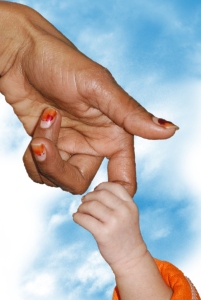
Turning the other cheek is not some masochistic desire to hurt yourself. And it’s not a game of one-upmanship to show that you can be the better person. No, both of these purposes are earthly, egotistical concerns.
The idea of “turning the other cheek” contains many ingredients. The first of these is love.
Turning the Other Cheek is an Act of Unconditional Love
The real meaning of turning the other cheek is a spiritual one. It is one of turning the other cheek—giving up your importance of physical things. “You want to hurt this cheek? No problem. And here’s the other one, too.” And this is not said in a flippant manner, but with complete and unconditional love.
In fact, “importances” get in the way of love. Jealousy is a perfect example. A spouse’s preconceived notion for how their partner should behave will create negative emotions, like jealousy, to the degree that those notions are perceived as “important.”
A prized possession, donated or tossed in the garbage by your significant other, can lead to a shouting match because the lost object is judged as “important.”
If you judge anything as “important,” then you make yourself vulnerable should that thing be damaged or stolen—if anything should happen to it that broke your plans or expectations for it. In fact, holding onto your plans and expectations also makes you vulnerable, for they can be taken from you, as well.
Turning the other cheek is entirely unselfish.
The opposite of this idea was portrayed in the movie, “The Usual Suspects,” when fictional character, Keyser Söze, is confronted by criminals holding his family hostage. Instead of remaining vulnerable, Keyser Söze kills his own family members and regains the advantage in the hostage situation. What makes this entirely different is Keyser Söze’s unmitigated selfishness. He gave up his family’s “importance,” but he did it for his own, physical advantage. In other words, he still held his physical self as “important”—more important than the lives of his wife and children.
And that brings us to the next ingredient.
Turning the Other Cheek is an Act of Humility

Some people look at humility as a condition of weakness. Nothing could be further from the truth. Because humility sometimes looks similar to groveling, it’s easy to get them confused, but they are worlds apart. Humility is the strongest possible position, spiritually, while groveling is a position of weakness both spiritually and physically.
Groveling is entirely selfish—attempting to protect the self by “kissing up” or attempting to pacify someone stronger than yourself. Some may do this when their lives are in jeopardy or the lives of people they love.
Turning the other cheek when your loved ones are in danger from murderers is not a callous, uncaring act. It is the most supreme act of love. In that state of spiritual bliss, you have the power to ask God for safety.
It is an Act of Fearlessness

I remember reading the story of a skydiver who suffered a double failure of his parachutes. He hit the ground at better than a hundred miles per hour. And yet, he walked away with a few scratches and bruises. On the way down, he thought to himself, “God, it looks like I’m coming to meet you.” In other words, he gave up his entire life and gave it to God. He was humble. Within those thoughts were the feelings of “reverence for life,” but not holding any importance on those feelings. He was humble to whatever God would decide, and he was entirely fearless. Then a miracle happened.
I also remember my late father telling me the story of a time when he was a teenager. He got out of his car and accidentally bumped into someone on the sidewalk. The man was nearly twice my father’s weight and quite muscular. He was also quite angry at the unintended assault. Quickly, he pulled back his fist to strike my father.
At this, my father thought to himself, “Well, it looks like I’m a goner.” Instead of flinching, my father merely relaxed and waited for the inevitable. There was no defeatist attitude and no groveling. He merely stood his ground and calmly accepted the “gift” the other man had intended for him. But the man’s fist lost its momentum and dropped to his side. One look at my father and he could no longer hold onto his anger. He simply turned and left.
The Real Meaning of Turning the Other Cheek

Turning the other cheek is a spiritual act of unconditional love and humble fearlessness to any of the possible consequences of the intended assault.
With such spiritual invulnerability, you can no longer be a victim. With this, you remove any possible resentment that could turn you into a perpetrator. And with the “turning the other cheek” attitude, you become far bigger than any problem.
Like the old saying, if someone compels you to walk a mile, walk an extra mile. Give them more than they asked for. During the Roman Empire, citizens were required to help Roman soldiers carry their equipment for up to a mile. Here the suggestion is to give them two miles. Instead of thinking of the Roman soldier as an enemy, think of them as a dearly beloved brother or fellow soldier. Don’t think of the request as a burden, but as an opportunity to display even more love. Isn’t that what Christ would have us to do?”
What other ingredients do you find in “turning the other cheek?”
This article was originally published 2013:0223 on And-The-Pursuit-Of-Happiness.com.
